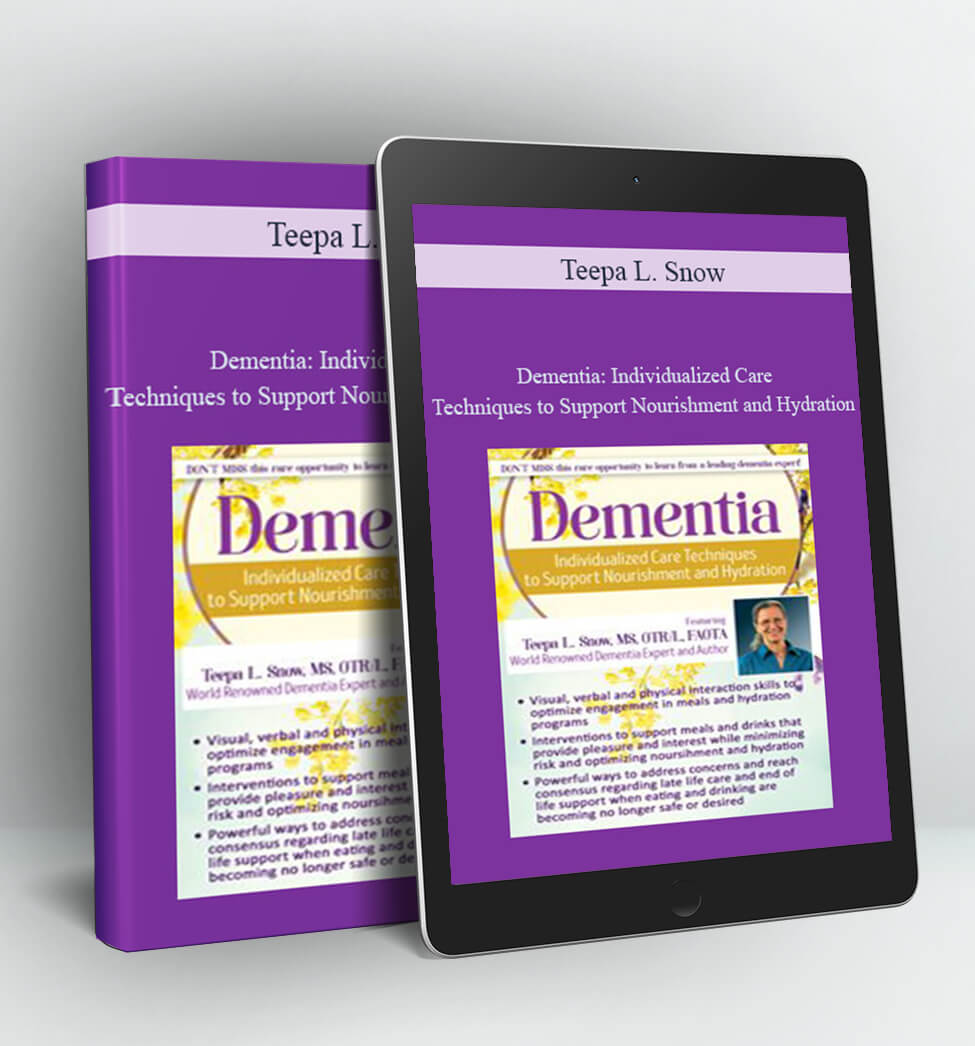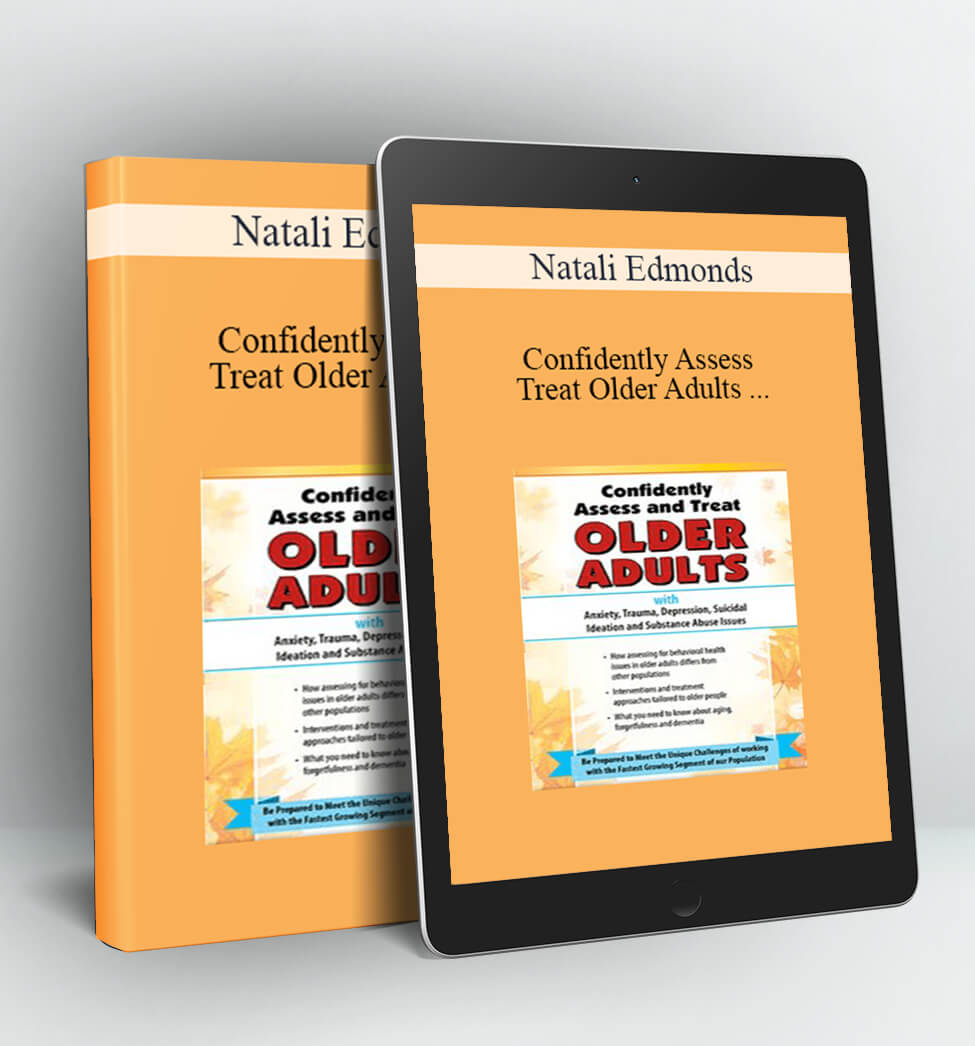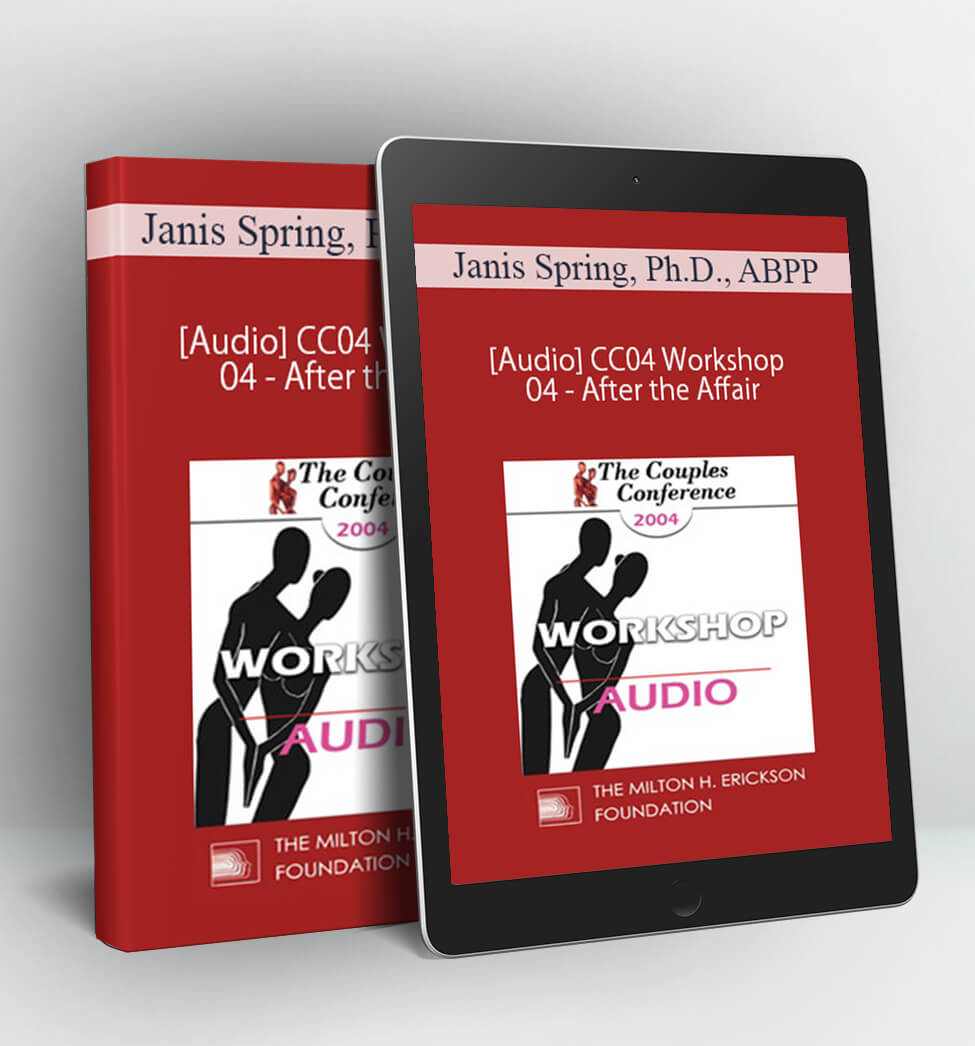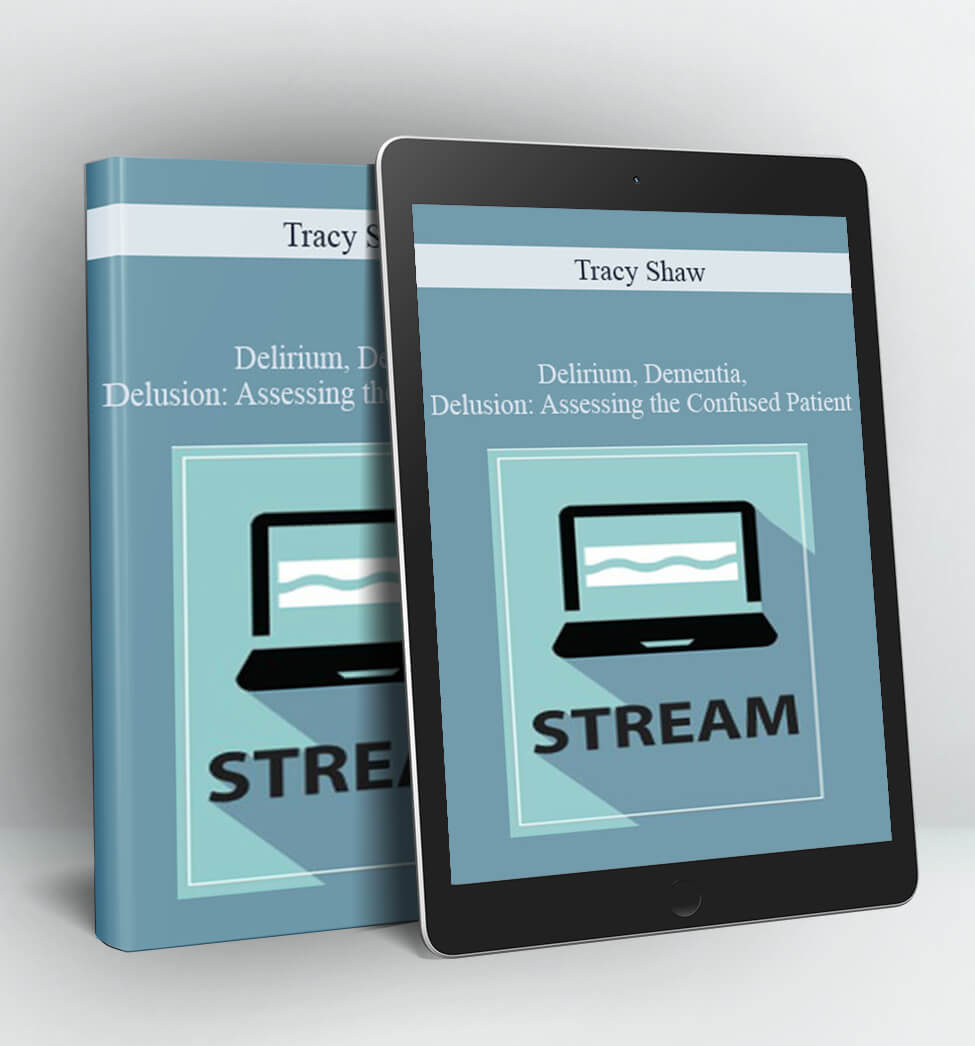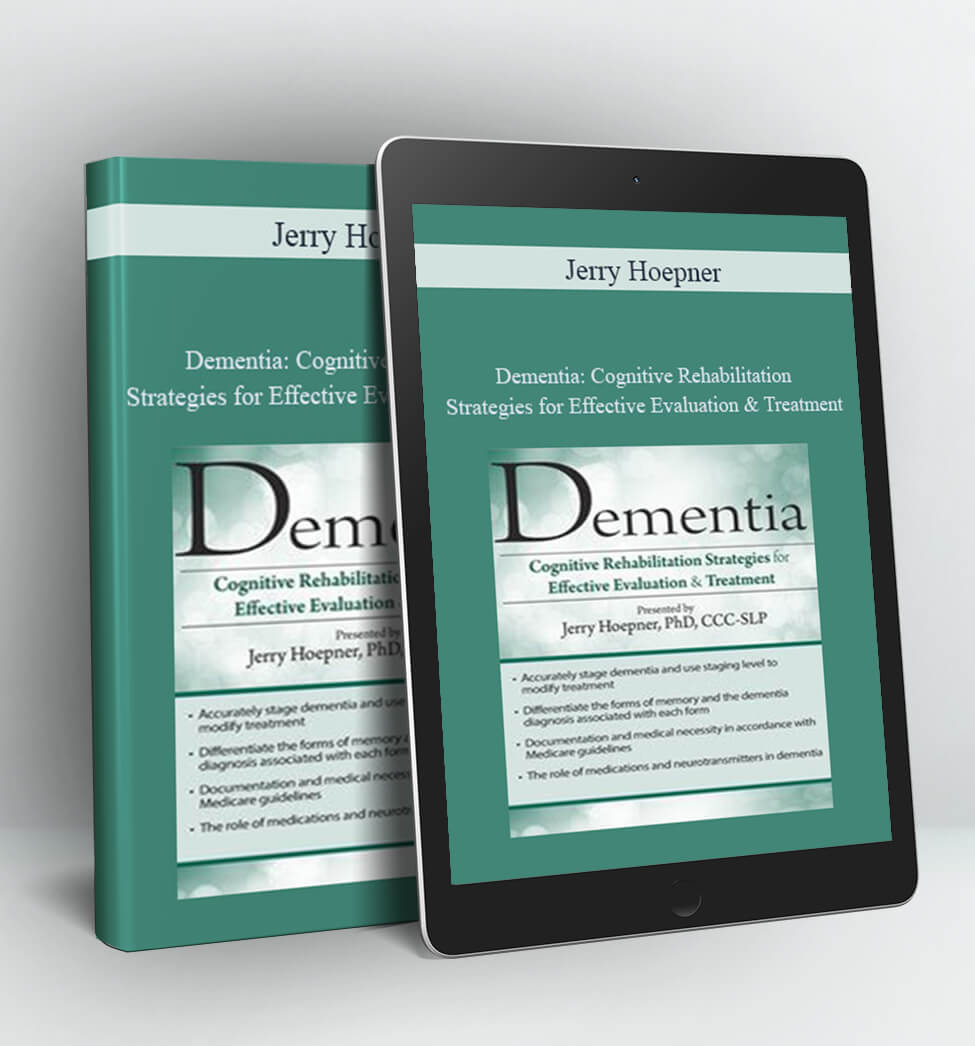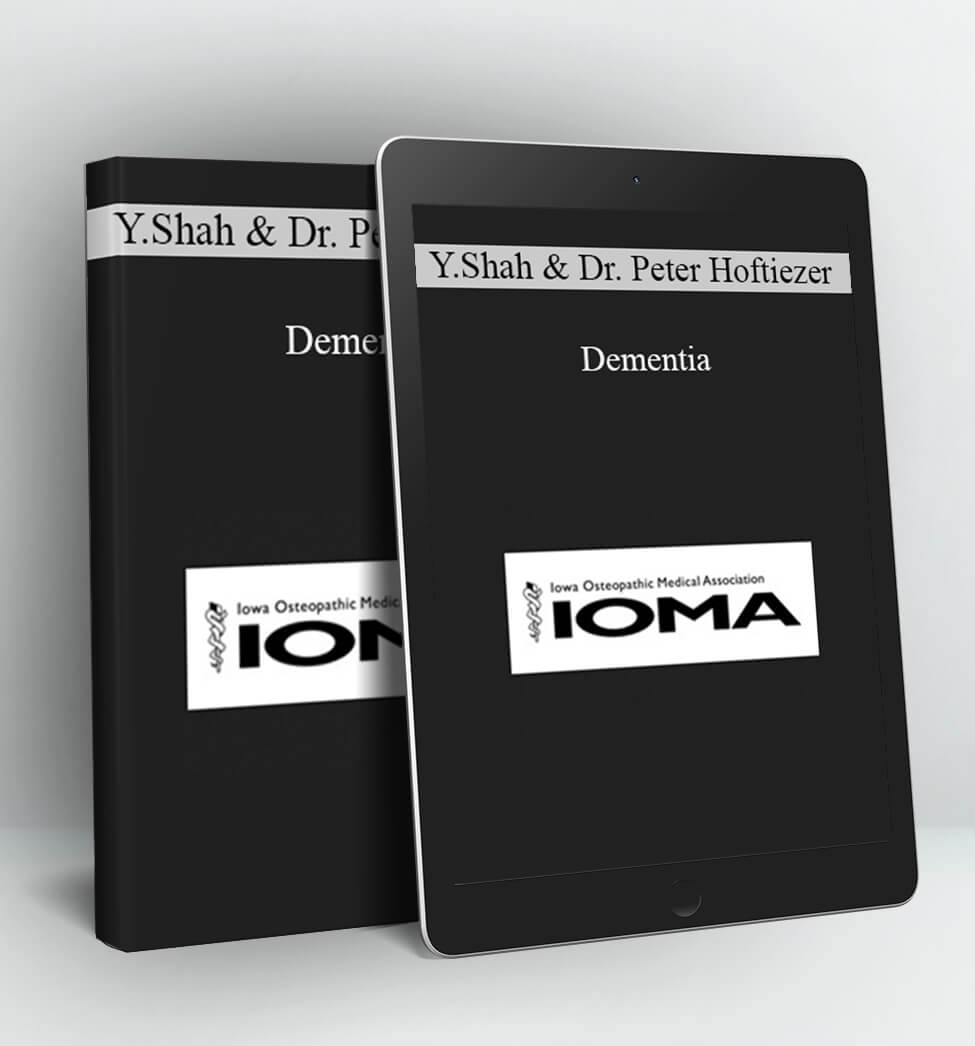Dementia – Teepa L. Snow
- Faculty:
- Teepa L. Snow
- Duration:
- 6 Hours 13 Minutes
- Format:
- Audio and Video
- Copyright:
- Mar 16, 2018
Description
Watch world renowned dementia expert and author, Teepa L. Snow, MS, OTR/L, FAOTA, for this engaging workshop as you explore the depth and breadth of change that various forms of dementia have on the person’s interest in and ability to consume food and drink—for enjoyment and survival. During this highly interactive program, you will learn the skills necessary to design and implement programs that serve your client to optimize remaining abilities and capacities while respecting and acknowledging the limitations that this neurodegenerative condition ultimately has on the person.
Drawing on over 30 years of clinical experience and research with dementia, Teepa will teach you practical and useful strategies and techniques to maximize functional performance, engagement and safety. You will walk away with screening and assessment maneuvers, environmental and programming modifications, ability-based cueing and assistance from first symptoms to end of the life considerations, and will be able to make a positive and valuable difference in the lives of people living with dementia whether—
- guiding in food and drink preparation during early stage situations
- fostering item selection and supported intake in mid-stages
- offering moisture and tastes for sensory satisfaction only at life’s end.
Handouts
| Manual (3.35 MB) | 80 Pages | Available after Purchase | |
| Fully Updated slides (0.91 MB) | 21 Pages | Available after Purchase |
Outline
- Dementia’s Effect on Appetite, Nutrition, Hydration, Meal Preparation and Eating
- Our relationship with food, drink, meal preparation and eating from multiple aspects:
- Cultural
- Spiritual
- Social
- Emotional
- Individual
- Physical
- Sensory
- Physiological
- Value and meaning of food and drink that affect behaviors related to food and intake
- Assessment tools to personalize behavioral interventions
- Our relationship with food, drink, meal preparation and eating from multiple aspects:
- Impact of Dementia on Changes in Brain Function
- Screen for visual, auditory, sensory-motor, olfactory and gustatory sensory intake
- Processing changes at various stages of dementia
- Cognitive skill alterations that affect independence, interest and engagement:
- Time awareness
- Situational awareness
- Problem solving
- Sequencing
- Memory
- Language processing
- Impulse control
- Ability-based and Cognitive Disability Evaluation Tool – GEMS® Model
- Provides common language and a framework to modify expectations and environments for:
- Early Stage (Diamond)
- Moderate Stage (Emerald)
- Moderately Severe Stage (Amber)
- Severe Stage (Rubies)
- Extreme Stage (Pearls)
- Provides common language and a framework to modify expectations and environments for:
- Techniques to Develop Skills that Optimize Successful Nourishment and Hydration
- Structured initiating to promote active participation and limit refusals
- Verbal statements to promote choice, self-direction and task initiation
- Cueing sequences with graded options for each GEMS® state
- Support attempts, focus attention, automatic reactions and reflexes
- Minimize distractions and passive feeding behaviors
- Strategies to Enhance Nourishment and Hydration in Early to Late Stage
- Guide meal selection, settings and routines in combination with each GEMS® state
- Limit refusals, negative reactions, over or under eating or drinking
- Cues, routines, communication and interaction skills to optimize performance
- Social, physical, and sensory environmental features that foster or impair optimal function
- Environmental settings/situations to address probable areas of concern
- Create individualized care programs to provide optimal support for you
- Members of a support team: The role of each person/discipline
- Life is Ending: The Role of Food and Drink
- Physical, behavioral, and physiological changes that typically signal the ending of life
- Interaction skills that support the exploration of:
- Personal beliefs about life sustaining measures
- Personal choice
- Offer versus push
- Value and meaning of food and drink
- Eating by mouth versus artificial hydration and nourishment
- Offering techniques that differentiate between lack of ability to make use of the nourishment and hydration vs. inability to understand the offer of food or drink
- Techniques and strategies when nourishment and hydration is no longer the goal
Faculty
Teepa L. Snow, MS, OTR/L, FAOTA Related seminars and products: 1
Teepa L. Snow, MS, OTR/L, FAOTA, is a leading expert on dementia with over 30 years of clinical experience, medical research and trainings. Her company Positive Approach® is an international dementia care training, education and consulting organization that provides= care techniques and training models used by clinicians and families working or living with dementia or other brain changes throughout the world. Teepa’s care strategies and techniques integrate therapeutic approaches that foster positive outcomes, modified environmental supports and expectations that match retained abilities of people living with dementia. She provides direct care in community and wellness centers, day programming sites, home care settings, assisted living and CCRC communities, long term care facilities, out-patient clinics, hospitals and rehabilitation settings.
Teepa teaches about the value of connection, particularly when primary verbal communication and interaction abilities are altered. Her teaching style is extraordinarily unique in that she is able to accurately demonstrate and model the struggle and challenges dementia creates for all parties involved. She is an enlightening, witty, entertaining, and energetic speaker, who is much sought after to present to agencies and organizations across the U.S and Canada.
Teepa has clinical appointments with Duke University’s School of Nursing and UNC-Chapel Hill’s School of Medicine. She works with the CMS INTERACT program and is an active member of the US Dementia Action Alliance. Teepa has worked as an OT director in a head injury facility, a clinical specialist in geriatrics for a Veteran’s Administration Medical Center, and a therapist and restorative care coordinator for long term care facilities. She has served as the director of education and lead trainer for the Eastern N.C. Chapter of the Alzheimer’s Association, as the program director of Durham Technical Community College’s OTA program, as an interdisciplinary team member and clinical associate professor at UNC-CH School of Medicine’s Program on Aging, and as a coordinator and care manager for CAP Medicaid waiver services in NC.
Teepa has served in a wide variety of leadership and advisory positions in professional organizations at both state and national levels, including the Alzheimer’s Association, Alzheimer’s Foundation of America, AOTA, and NBCOT.
Speaker Disclosures:
Financial: Teepa Snow is in private practice. She receives a speaking honorarium from PESI, Inc.
Non-financial: Teepa Snow is a member of the NC Coalition for Long Term Care Enhancement; American Occupational Therapy Association; North Carolina Occupational Therapy Association; North Carolina Assisted Living Association; and Friends of Residents in Long Term Care.
Access Download Dementia – Teepa L. Snow right now!
Delivery Method:
After your purchase, you’ll get access to the downloads page. Here, you can download all the files associated with your order.
Downloads are available once your payment is confirmed, we’ll also send you a download notification email separate from any transaction notification emails you receive from Vinlearn.

